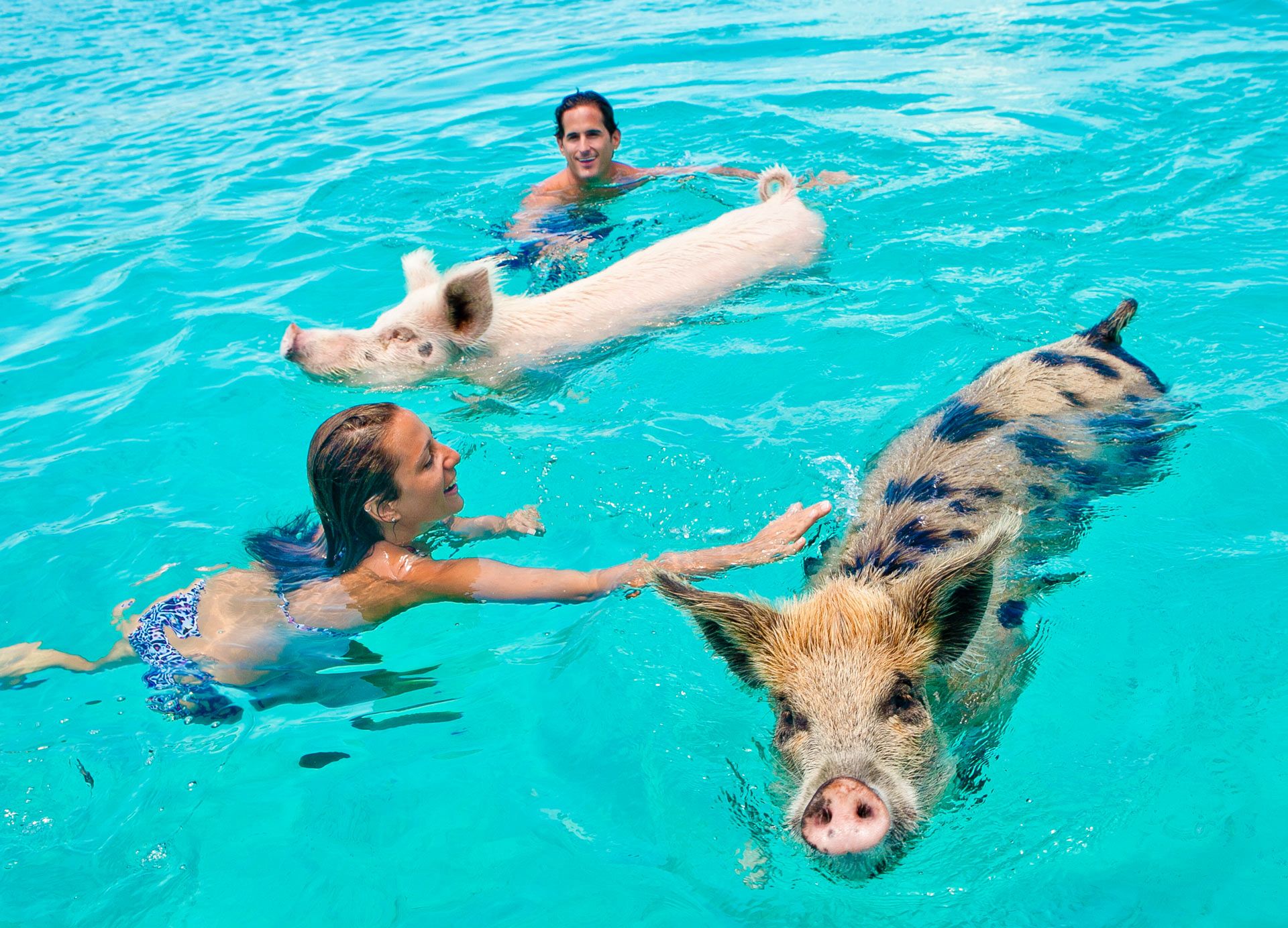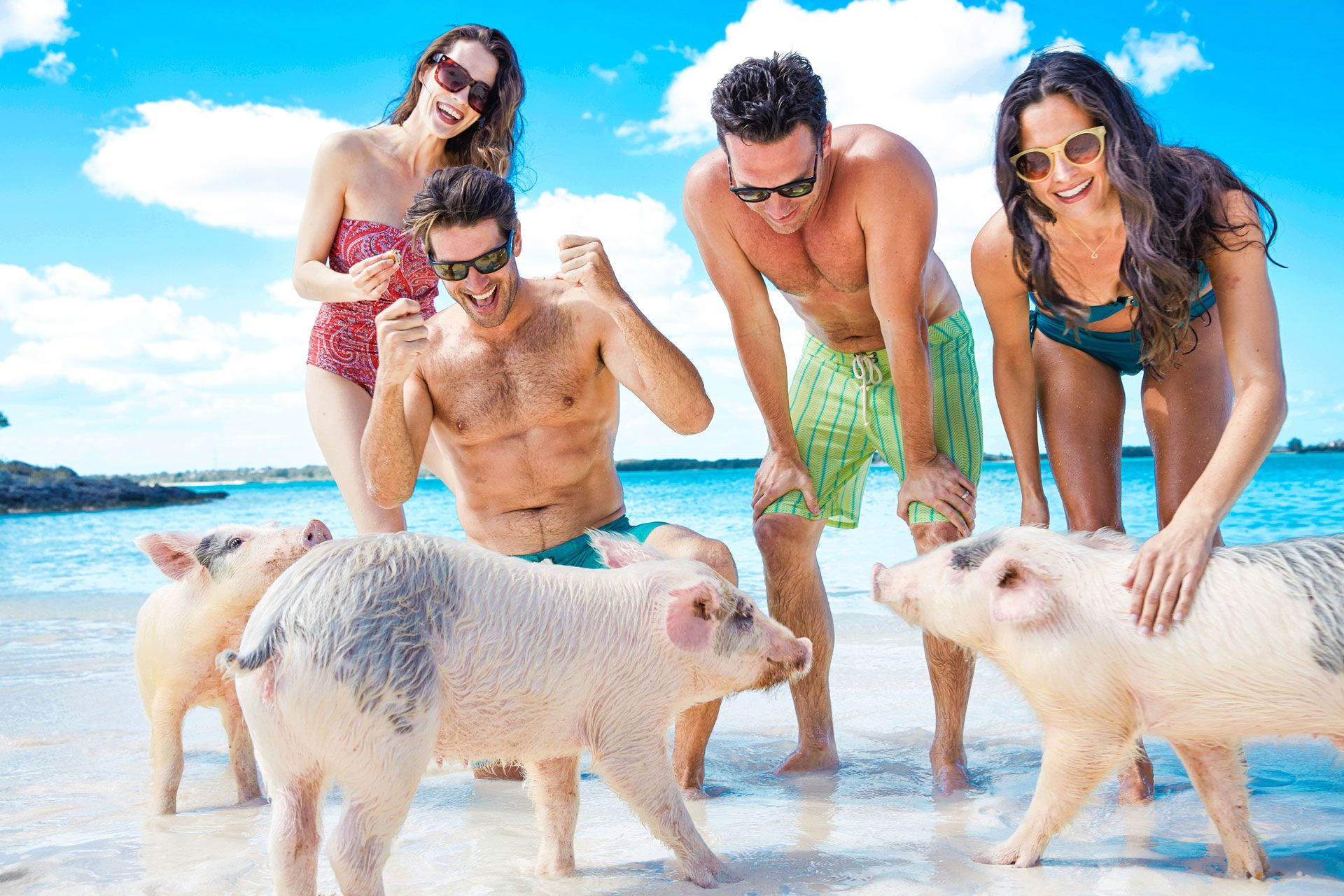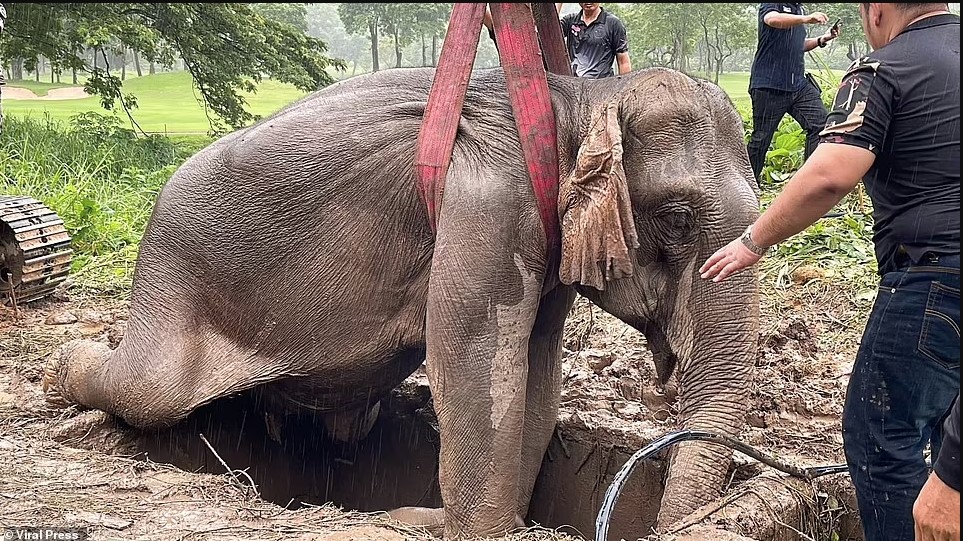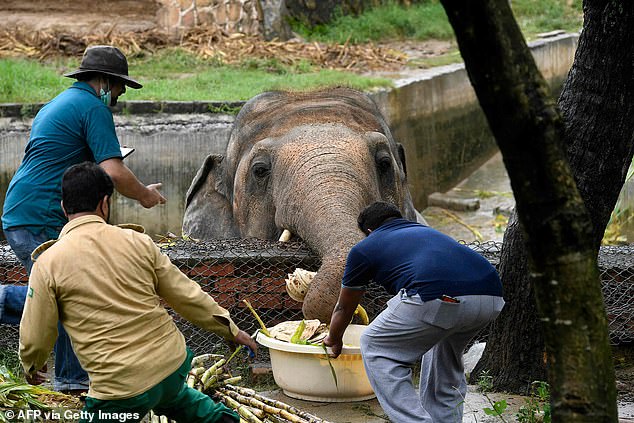THE swimming pigs of the Bahamas have been a popular tourist attraction in the region for over 20 years.
There is no official account of how the pigs got there in the first place. Here, we look at the history surrounding Big Major Cay, better known as Pig Beach.

The swimming pigs of the Bahamas are a huge tourist attractionCredit: Alamy
What are the swimming pigs of the Bahamas?
Pig Beach is named as such for a very good reason – it’s home to swimming pigs.

Activities such as whale watching and swimming with dolphins are common day trip options in many tourist resorts.
But in the islands of Exuma, a district of the Bahamas, you can swim with pigs.
The wild pigs roam freely on the beaches – before cooling off in the Caribbean sea.
It’s not known how the pigs originally came to live in the area, as they are not native to the Bahamas and live on an otherwise uninhabited island.
Local legend has it that the animals were left there long ago by a group of sailors who intended to come back and eat them.
Another rumour claims the pigs swam to safety on the islands after escaping from a shipwreck.
Where is Pig Beach?
Pig Beach is an area of the deserted Big Major Cay, in Exuma, Bahamas.
:max_bytes(150000):strip_icc()/pigs-exumas-bahamas-snorkeling-16625cd450dd44299e8db9c8c1ca9183.jpg)
Exuma is a district consisting of more than 365 islands, which are also known as “cays”.
The Exuma Cays are known as a playground for the rich and famous – boasting numerous private homes, luxury resorts, and beach-side condos.
Staniel Cay is the closest island to Pig Beach – and has several tourist guides and companies happy to make the trip.
How many pigs are there on Pig Beach?
Traditionally, Pig Beach has been home to around 20 pigs and piglets – while a few stray cats and goats can be found on the island too.

However, the pigs were feared to be dying out in 2017 – with reports that there are only between seven and 15 animals left on the island.
It was originally thought that food poisoning could be the cause of the deaths, but now owner Wayde Nixon has claimed that drunk tourists feeding the pigs “beer and rum” could be behind the mysterious deaths.
But experts eventually found that sand ingested by the pigs as they snuffled for food thrown on the beach was the real cause of their deaths, along with lack of fresh water.
In January 2018 it was reported that the surviving pigs had given birth to piglets.

Speaking to the official Bahamas tourist board, tourism director Joy Jibrilu said: “As a destination that is world-renowned for welcoming visitors and providing them with the most beautiful beaches, lavish hotels and resorts, and fine dining, and for being a dream destination, the Islands of The Bahamas are very proud to be the Official Home of the Swimming Pigs.
“Providing visitors with the once-in-a-lifetime experience of interacting with these wonderful animals is just one more thing that distinguishes The Bahamas.
“We’ve already introduced thousands of visitors to ‘Pig Beach’, and we look forward to welcoming thousands more in the years to come.
“These animals are now as much a Bahamian experience as any other that visitors may discover while visiting The Bahamas.”








